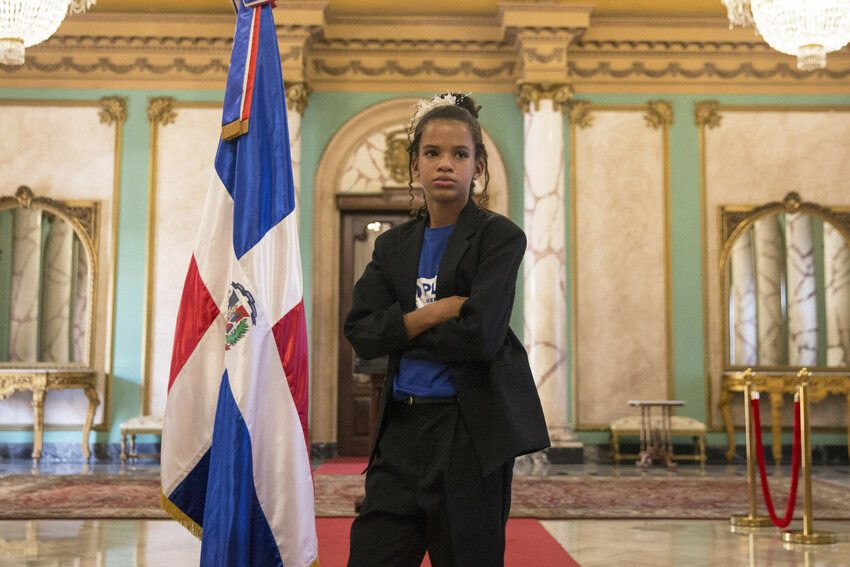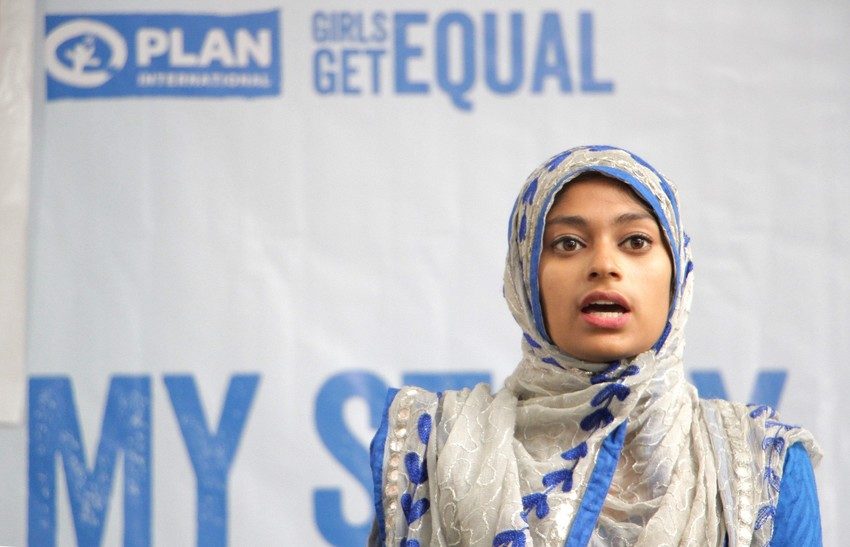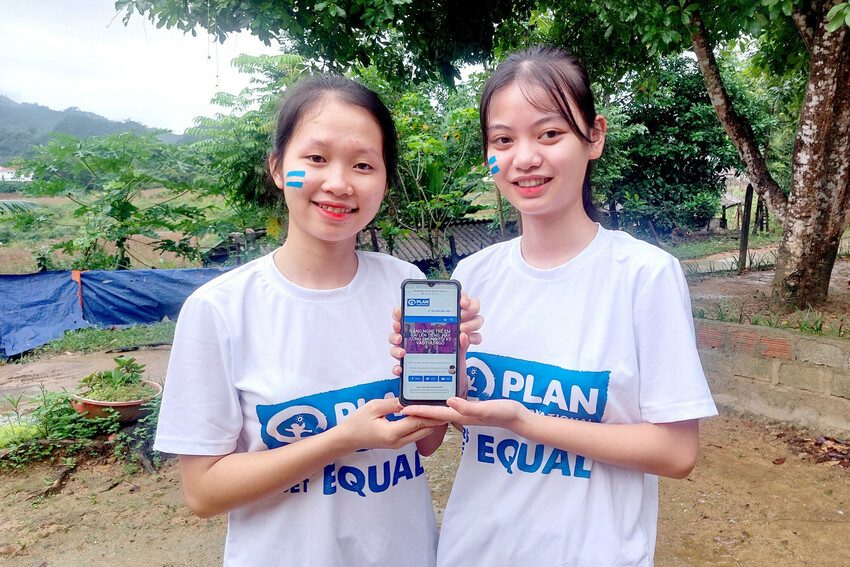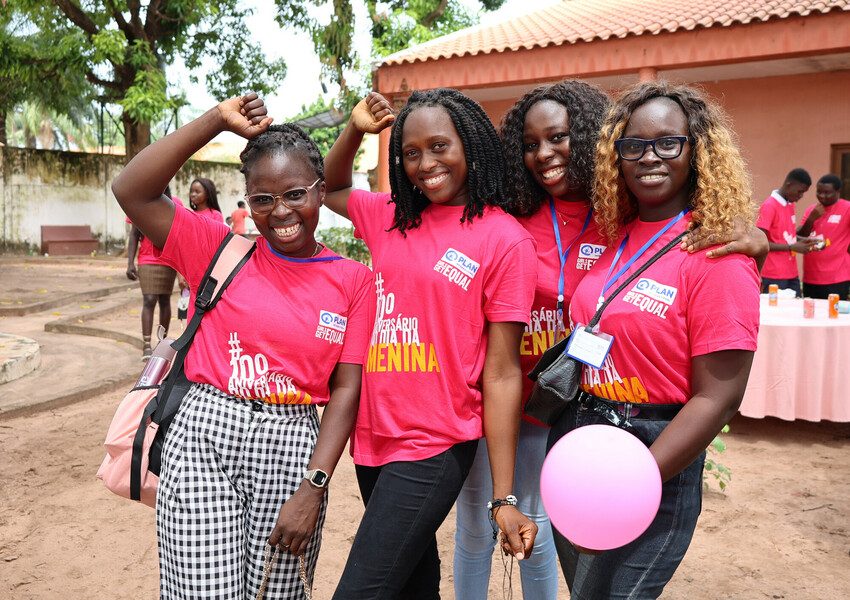Activist Hub
Inspiration, resources and tools for young campaigners.
Girls Get Equal had three demands: for girls and young women to have equal power to take part in all decisions that affect their lives; equal freedom so they are safe to speak up in public and online without fear of violence; and equal representation with an end to harmful stereotypes that hold them back.
Over five years, Girls Get Equal has facilitated 6000 Girls’ Takeovers, including: the Presidents of Paraguay, Malawi, Guinea-Bissau, Switzerland, and Timor-Leste, the Vice Presidents of Colombia, Sierra Leone, South Sudan, the Regional President of Ethiopia, the President of the Swiss Confederation, the President of the Parliament of the Central African Republic, the National Palace of the Dominican Republic, news stations, Embassies, UN agencies, and many more.
Girls Get Equal also inspired over 2 billion steps for gender equality through campaign actions and events securing over 1300 new commitments from leaders and key stakeholders to directly support girls’ leadership and young people’s activism.

At the launch of Girls Get Equal, girls collected 70,000 signatures from across the world as commitments to stand in solidarity with young people and put pressure on power holders and decision-makers for greater efforts to achieving gender equality.
In the Philippines, meaningful youth participation in policy and advocacy on Safe Spaces and Anti-OSAEC (Online Sexual Abuse and Exploitation of Children) resulted in the passage of Republic Act 11313 (Safe Spaces Act) in 2019 and Republic Act 11930 (Anti OSAEC Law) in the following year. These legislative victories were anchored by girls and youth from all over the country who stood as vocal advocates.
Three magistrates from the Colombian Supreme Court took an oath from a youth-led initiative committing to fight against gender-based violence.
Plan International Belgium and Australia gathered over 7,000 signatures calling on the Kampala Capital City Authority to implement recommendations generated by girls participating in Safer Cities and Free to Be programs. These signatures contributed to the government of Kampala committing to improve street lighting, improve sewage systems to counter floods, demolish abandoned buildings, build new accessible buildings and campaign against sexual harassment.

Standing in solidarity with Ugandan youth advocates taking action to stop sexual exploitation at work, Plan International UK and a coalition of contributing NOs (including Australia and Spain) mobilised over 40,000 signatures globally to be presented to the Minister of Gender, Labour and Social Development.
Plan International Sierra Leone contributed to the amendment of the Sexual Offences Act 2012, which led to the passing of the new Sexual Offences Act 2019. They also successfully advocated for Safeguarding to be included in the Code of Conduct for Teacher and Educational Personnel.
Philippine City Governors committed to strict implementation of the Safe Spaces Act, including the installation of CCTV, streetlights and emergency contact numbers at all public transport services. Plan International Philippines also worked on the Ordinance Systematic Action for Emergency Reporting and Responding (SAFERR), calling for increased public safety mechanisms for girls and young women. The Local City Mayor installed 7 billboards for public awareness in support of the Ordinance.
15 of Plan International’s partner creative agencies across Africa, Asia, Europe, Latin America and North America made a commitment to end the use of harmful gender stereotypes in all future content they produce for all their clients. Plan International invited its partner creative agencies to make this commitment after it became an official ally of UN Women’s Unstereotype Alliance.
For International Day of the Girl 2020 girls wrote an open letter to the major social media platforms, calling on them to address their reporting mechanisms for online abuse. Members of the public were invited to sign the letter to amplify girls’ voices. The campaign was co-created with young people and Plan International colleagues all over the world. More than 45,000 people signed the girls’ open letter in the first week alone, reaching 66,000 signatures in total.
As a result, Instagram, along with Facebook and WhatsApp, committed to a series of Girls Get Equal Listening Sessions with girl activists and CSO representatives from all over the world. These sessions gave girls a say in how to make online safety a reality. One of the young leaders joined Facebook’s new Global Women’s Safety Expert Advisors panel to raise girls’ voices for online safety. Facebook platforms committed to continue adding new languages to their content moderation to better reflect the diversity of cultures and contexts in which girls and young women face abuse and to continue hiring highly-qualified staff from underrepresented groups. In addition, Facebook, Google, TikTok and Twitter announced commitments to tackle online abuse, including regarding reporting mechanisms, at the UN Generation Equality Forum in Paris.

In the Philippines, the Girls Get Equal campaign contributed to the approval of the Senate Bill on strengthening protections against Online Sexual Abuse and Exploitation of Children. The Committee on Women and Children proposed a resolution to enhance reporting mechanisms on social media platforms through an ‘online police’ scheme.
In South Sudan, the Country Commissioner, County Education administrator, and Minister Youth and Sports made commitments to support the freedom to participate and better representation including promotion of girls’ online education, ending child marriage and unintended early pregnancies on social media and in policy development and reviews of initiatives for girl’s empowerment.
Within the President of the Dominican Republic’s public pledge to Girls Get Equal, the President of the Chamber of Deputies pledged to address limited internet access and online harassment.
200 young people joined the Uganda National Youth Parliament where they debated the impacts of COVID-19 on youth and presented a co-authored petition to the Speaker of Parliament. The petition was used as evidence during the National Stakeholders’ meeting on the economic status of girls and young women within and outside the country.
A Girls’ Petition was launched on International Day of the Girl in 2021 calling on national governments to educate children in digital literacy – a vital and urgent step towards addressing misinformation. Around the world young people, partners and supporters were mobilised to sign and promote the petition, which received 49,524 signatures from 149 countries. Offices used the petition to influence decision-makers for change and raise awareness on online-gender based violence across global and national levels
The Equal Power Now Youth Manifesto launched on International Day of the Girl 2022. Co-created with the Global Young Influencer Group, the manifesto calls for the meaningful participation of girls, young women, and their networks in decision-making processes. Our offices were encouraged to work with youth networks to create their own national Youth Manifestos. In Ecuador, for example, a local Manifesto emphasised the importance of quality education for girls and young women and was delivered to the Ministry of Education

In January 2023, Plan International launched the ‘Dear Leaders: Write to your Decision-Maker!’ Action to bring the Youth Manifestos to the attention of decision makers. In Nigeria, youth actively participated in actions linked to the 2023 national elections and the #SheVotesToo campaign. Over 70 young people conducted a ‘Twitter storm’ and reached out to the President-elect, Bola Ahmed Tinubu, through email actions, urging him to prioritise girls’ education and health as crucial aspects of Nigeria’s development agenda. The hashtags #DearLeaders and #SheVotesToo gained significant traction on Twitter in Nigeria, and even became a trending topic.
During a takeover at the Office of the Vice President on International Day of the Girl, Sierra Leone‘s Vice President emphasised the government’s commitment to education and the empowerment of women and girls, and pledged to continue creating opportunities for girls to develop, access education, and pursue careers, with the aspiration that they may one day hold the position of Vice President for more than just a day. On the same day, girls took over 144 of the 146 seats in Parliament and led discussions on the Gender Equality and Women’s Empowerment (GEWE) Bill. The GEWE Act was successfully enacted into law in January 2023, marking a significant step towards gender equality and women’s empowerment in Sierra Leone.